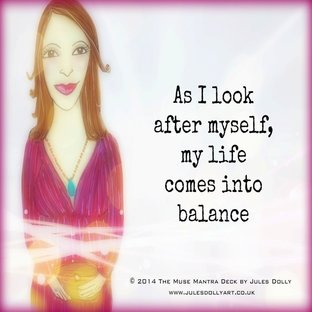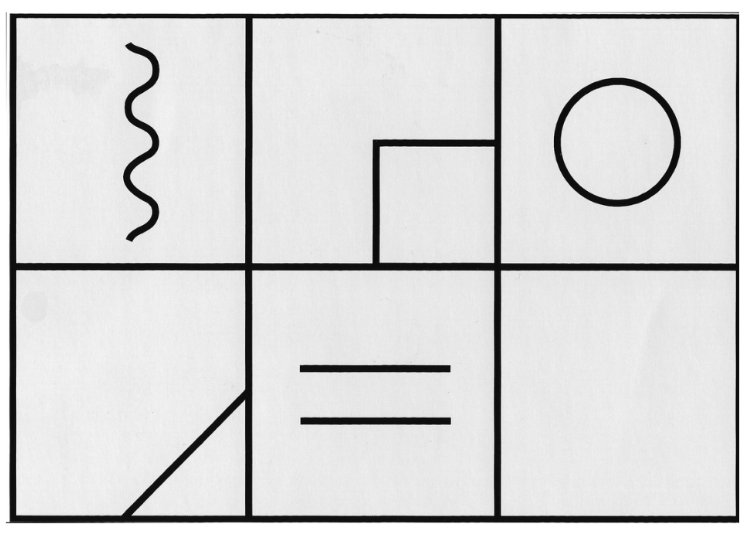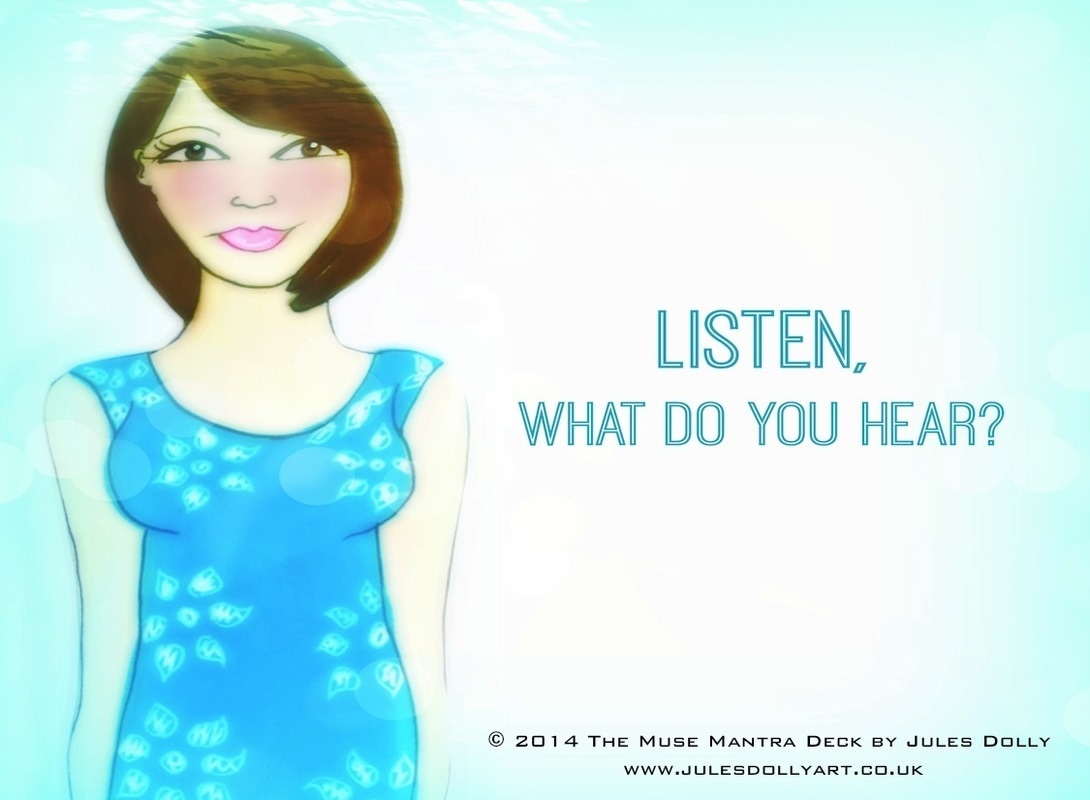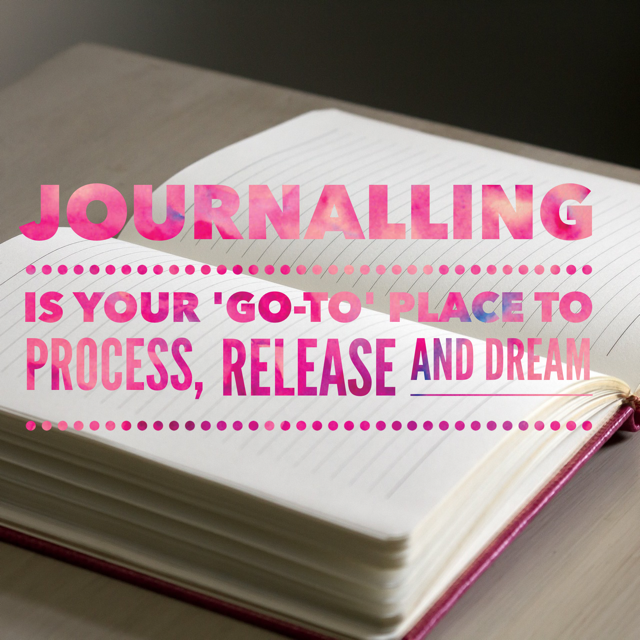|
Disclaimer - this is a test so open-ended it may give you food for thought, or a moment's amusement! I was introduced to this test about 20 years ago by a psychotherapist I was seeing - it really interested me. This past week I stumbled across it again and I thought I'd share it here because, well, it's a bit of fun, but also there's lots of room for discussion and reflection! The Drawing Completion Test is actually called 'The Wartegg Drawing Completion Test' devised by Austro-German psychologist Ehrig Wartegg in 1934. It's a a projective drawing test developed to reveal aspects of personality for diagnostic analysis which he developed within the *Gestalt psychological tradition in Leipzig, Germany. (Gestalt is a philosophy of mind of the Berlin School of experimental psychology. Gestalt psychology is an attempt to understand the laws behind the ability to acquire and maintain meaningful perceptions in an apparently chaotic world.) Like other projective drawing tests, his test is based on the assumption that the content and the qualitative aspects of the drawings reflect the personality of the person drawing. Can this really be so? Let's find out. As you can see from the image each section has a series of lines and shapes. Here's what to do now:
There are no rules, just draw, doodle, complete each section. When you're happy with what you've done. Scroll down and read the symbolism of each area. DO NOT READ the interpretative texts below until you have completed your drawings. * * * * * * * * * * * * * WAVY LINE: this motif has to do with your emotional life. Are you floating on or above the waves, or are you sinking below them? Did you see and project something else altogether? CORNER SQUARE: the square is an architectural unit; your response here relates to your feelings about your house/home or garden. These may have implications with regards to aspects of your identity. CIRCLE: this drawing relates to your sense of self. You may have been assertive or tentative (drawn a face, coloured in the circle etc) or you may have suggested that there are pressures from outside the circle of your self. You may happily have seen yourself as a beaming sun or a flower. CUT OFF CORNER: this will reveal how you relate to your friends, who are at once part of you and separate from you. TWO LINES: the two lines stand for the inescapable dualism of the universe, especially the duality of sex. You may have just revealed your deepest feelings about love (on the other hand, you may not.) BLANK SPACE: your whole life is revealed in this space. Without prompt or guideline you have revealed your innermost self.
2 Comments
 How can you tell if you're actively listening with your husband, wife, partner, girlfriend, boyfriend, family member, work colleague, customer or client? How can you tell if you're actively listening to YOURSELF? Are you actually hearing the meaning behind your own words and also the words that 'they' are speaking to you. If we are feeling that others are not listening to us, sometimes we are not listening to ourselves and that's the first place to start. Truly Listening. Listening to the music behind the words that you're using. Below there are 18 statements, for each statement, write down whether you consider it to be True (T) or False (F). _______ 1. Most people are brought up to be good listeners. _______ 2. People's thoughts can interfere with their listening. _______ 3. Listening is a natural activity. _______ 4. To be able to listen to others, people need to be able to listen to themselves. _______ 5. Being a good listener never requires self-discipline. _______ 6. People may resist listening to others who blame and get angry with them. _______ 7. People are more likely to talk to people with whom they feel safe and accepted than with those whom they do not. _______ 8. It is always up to other people to communicate precisely what they want. _______ 9. People who have something that they can't wait to say, listen well. _______ 10. Some people listen too much because they're afraid of revealing themselves. _______ 11. An important aspect in developing trust is listening and keeping confidences. _______ 12. Talking is more important than listening in interpersonal communication. _______ 13. The amount people reveal about themselves is likely to influence the amount others tell them about themselves. _______ 14. Fatigue never affects the quality of people's listening. _______ 15. People who feel very emotional about issues are good listeners. _______ 16. Listening to others does not involve paying attention to their voice quality and body language as well as what they say. _______ 17. People who are very angry are rarely good listeners. _______ 18. People sometimes send mixed messages which are difficult for the listener to understand. How did that feel? What did you discover about a) your own listening skills and b) how you listen to yourself? Why not take this to your Journal and explore s'more? This is something that is coming up in client sessions a great deal, there seems to be a theme running through here - are we listening to ourselves, to our bodies, to our spirit self. Are we hearing the nudges? From experience, listening to ourselves is just as important as listening to others, especially if you're working in the helping/healing professions. I'm a huge advocate of writing in a journal. I started doing it when I was in school. Back then, it was more like 'Dear Diary.' When I reached the age of 20, I felt inspired to buy plain journals and to write whenever I wanted to, with no agenda. I used to find the process so enlightening, I connected to a part of myself and I discovered hidden messages, about life, love, career, relationship, health. It's amazing what flows through from brain to pen. When you write regularly in a journal, you begin to notice patterns - in how you feel, what you're repeating and also emotional responses to certain situations. What I know for sure about keeping a journal is this:-
For me, the process always begins with creating a practice. If we turn to the page and expect that we're going to write something profound, then we are setting ourselves up for a fall. So what happens when you're feeling stuck and you just don't know how to get going again? Here are my 10 tips to get your ink flowing again. Pre-requisite: Maybe you need a new notebook (with lines or blank it doesn't matter.) Find something you'll really enjoy lushing over and go treat yourself to a lovely new pen! ps .... there is no right or wrong way of doing this
Hope this has got your journal writing pulsing again. A wonderful resource to turn to is Julia Cameron's Morning Pages, which you can find within her 12 step creative recovery programme The Artist's Way. You can find out and watch her 2 minute video here. |



 RSS Feed
RSS Feed